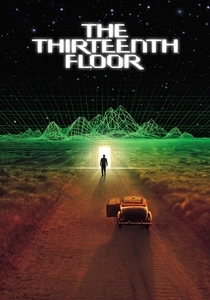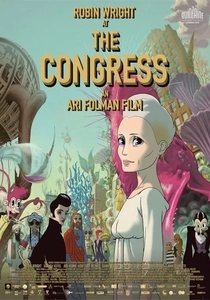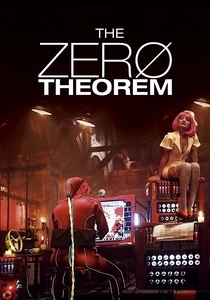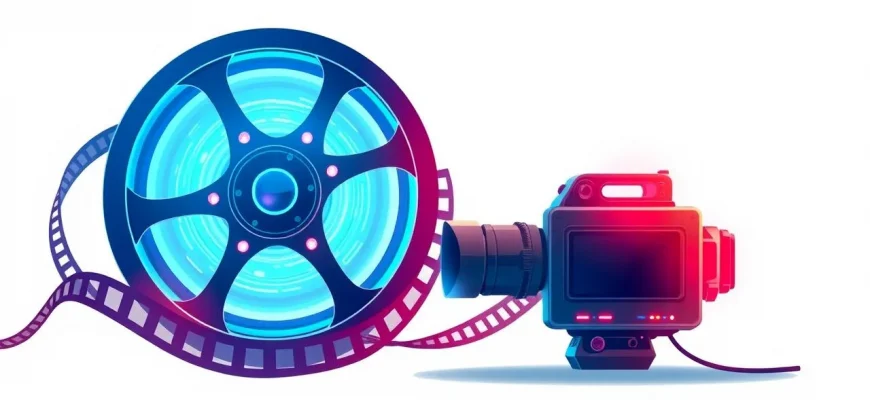Dive into the enchanting world where science fiction meets the art of filmmaking. This curated list of 10 films not only showcases the magic of cinema but also explores how futuristic technology can influence the way movies are made, watched, and experienced. From virtual reality to time-traveling directors, these films offer a unique perspective on the future of film, making them a must-watch for cinephiles and sci-fi enthusiasts alike.

Brainstorm (1983)
Description: Scientists invent a machine that can record and play back human experiences, essentially creating a new form of cinema where viewers can experience the recorded memories of others.
Fact: The film was one of the last projects of director Douglas Trumbull, known for his visual effects work on "2001: A Space Odyssey."
 Watch Now
Watch Now 
The Lawnmower Man (1992)
Description: A gardener undergoes experimental virtual reality treatments that enhance his intelligence, exploring themes of human evolution through technology, akin to the transformation of characters in films.
Fact: The film was one of the first to explore virtual reality in cinema, predating the VR boom by decades.
 Watch Now
Watch Now 
The Truman Show (1998)
Description: Here, the entire life of Truman Burbank is a reality TV show, exploring themes of voyeurism, privacy, and the manipulation of reality, which can be seen as a metaphor for the control directors have over their films.
Fact: The film was shot in Seaside, Florida, which was designed to look like an ideal American town for the movie.
 Watch Now
Watch Now 
Edtv (1999)
Description: This film follows a regular guy whose life becomes a 24/7 reality TV show, touching on themes of fame, privacy, and the blurring lines between reality and entertainment.
Fact: The film was inspired by the real-life reality TV show "The Real World."
 Watch Now
Watch Now 
The Matrix (1999)
Description: While not directly about filmmaking, "The Matrix" revolutionized visual effects and introduced the concept of a simulated reality, which has influenced countless films about virtual worlds and the nature of reality itself.
Fact: The film's "bullet time" effect was groundbreaking, and it was one of the first movies to use extensive CGI for its action sequences.
 Watch Now
Watch Now 
The Thirteenth Floor (1999)
Description: This film delves into virtual reality, where a company creates a simulated 1937 Los Angeles, exploring themes of reality, identity, and the ethics of creating virtual worlds for entertainment.
Fact: The film is loosely based on the novel "Simulacron-3" by Daniel F. Galouye, which also inspired the TV series "Counterpart."
 Watch Now
Watch Now 
Inception (2010)
Description: Although not about filmmaking per se, "Inception" explores the concept of dreams within dreams, akin to layers of narrative in film, and how one can manipulate reality, much like a director manipulates a film's plot.
Fact: The film's complex narrative structure required a special software to keep track of the various dream layers and timelines.
 Watch Now
Watch Now 
The Congress (2013)
Description: In this surreal journey, Robin Wright plays a version of herself, selling her digital likeness to a studio, which then uses it in any film they desire. The film explores the implications of digital immortality and the future of acting in a world where actors can be replaced by their digital avatars.
Fact: The film is based on Stanislaw Lem's novel "The Futurological Congress". It features a mix of live-action and animation, showcasing the transition from reality to virtual reality.
 Watch Now
Watch Now 
The Zero Theorem (2013)
Description: This film features a reclusive computer programmer working on a formula to prove the meaninglessness of life, but his virtual reality experiences blur the lines between reality and fiction, much like a film.
Fact: It was directed by Terry Gilliam, known for his surreal and visually striking films.
 Watch Now
Watch Now 
Strange Days (1995)
Description: This film explores a near-future where people can record and experience others' memories, essentially creating a new form of cinema where viewers can live through someone else's experiences.
Fact: Kathryn Bigelow, the director, was the first woman to win an Academy Award for Best Director for this film.
 30 Days Free
30 Days Free 








